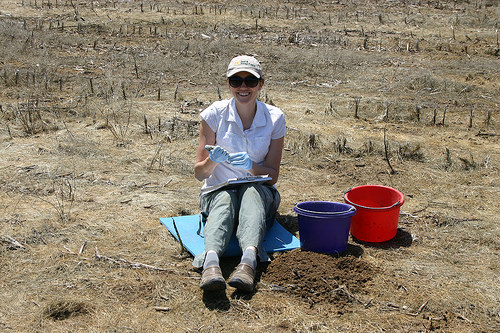Think earthworms are only good for fish bait? Think again! Earthworms play a valuable role in soil health and viability in forests, prairies, gardens and even on farmland.
Earth Day is a good time to recognize earthworms as environmental helpers. They feed primarily on organic material in soils, eating fresh and decaying material from plant roots, including crops like corn and soybeans. As they feed, they move and mix their waste with the soil in a moist, microbe-rich environment. Earthworm tunnels bring in oxygen, drain water and create space for plant roots. Their natural feeding habits mean that small amounts of soil pass through their bodies and, surprisingly, when they excrete it, it is in better condition—what goes in comes out much better!
Agricultural Research Service studies show that earthworms can be used as a simple way to determine soil health in field crops.
The carbon that is consumed, processed and then excreted by earthworms is a key building block in a well-structured soil, says Amanda Ashworth, soil scientist at the ARS Poultry Production and Products Safety Research Unit in Fayetteville, Arkansas.
Ashworth and her colleagues at the ARS Dale Bumpers Small Farms Research Center in Booneville, Arkansas, and at the University of Tennessee, inventoried earthworm populations in soils where no-till cropping systems and cover crops and poultry litter had been used for 12 years. They found that earthworm populations were twice as abundant in soils where corn and soybean are grown. Also, earthworm populations were more than twice as large in field tests that used poultry litter.
Earthworms move the soil around and create tunnels that alter soil in a beneficial way. ARS scientists are developing soil management strategies to improve soil health and the Earth’s ecosystem.
So, as we celebrate Earth Day, think of the earthworm as an environmental helper—working to improve soil health, not only for field crops but also for other plants.

